Related Research Articles
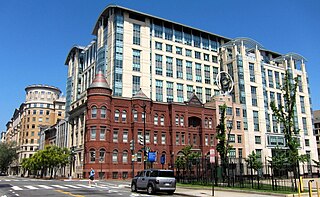
The National Academies of Sciences, Engineering, and Medicine is the collective scientific national academy of the United States. The name is used interchangeably in two senses: (1) as an umbrella term for its three quasi-independent honorific member organizations the National Academy of Sciences (NAS), the National Academy of Engineering (NAE), and the National Academy of Medicine (NAM); and (2) as the brand for studies and reports issued by the operating arm of the three academies, the National Research Council (NRC). The NRC was first formed in 1916 as an activity of the NAS. Now jointly governed by all three academies, it produces some 200 publications annually which are published by the National Academies Press.
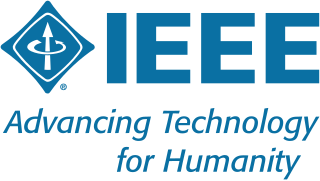
The Institute of Electrical and Electronics Engineers (IEEE) is a professional association for electronic engineering and electrical engineering with its corporate office in New York City and its operations center in Piscataway, New Jersey. It was formed in 1963 from the amalgamation of the American Institute of Electrical Engineers and the Institute of Radio Engineers.
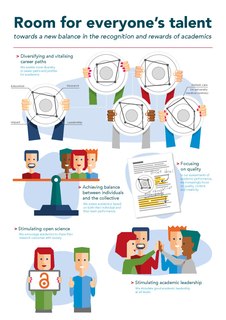
Science policy is concerned with the allocation of resources for the conduct of science towards the goal of best serving the public interest. Topics include the funding of science, the careers of scientists, and the translation of scientific discoveries into technological innovation to promote commercial product development, competitiveness, economic growth and economic development. Science policy focuses on knowledge production and role of knowledge networks, collaborations and the complex distributions of expertise, equipment and know-how. Understanding the processes and organizational context of generating novel and innovative science and engineering ideas is a core concern of science policy. Science policy topics include weapons development, health care and environmental monitoring.

Waterford Institute of Technology (WIT) is a state funded third-level educational freely available large scale institution situated in the city of Waterford, Ireland. The institute has six Schools and offers programmes in Business, Engineering, Science, Health Sciences, Education & Humanities.

The Natural Sciences and Engineering Research Council of Canada is the major federal agency responsible for funding natural sciences and engineering research in Canada. NSERC directly funds university professors and students as well as Canadian companies to perform research and training. With funding from the Government of Canada, NSERC supports the research of over 41,000 students, trainees and professors at universities and colleges in Canada with an annual budget of CA$1.1 billion in 2015. Its current director is Alejandro Adem.
Innovation, Science and Economic Development Canada, formerly Industry Canada (IC), is the department of the Government of Canada with a mandate of fostering a growing, competitive, and knowledge-based Canadian economy. ISED specifically supports Canadian innovation efforts, trade and investment, enterprise growth, and customized economic development in Canadian communities.
Forfás was the national policy advisory board for enterprise, trade, science, technology and innovation in Ireland. The agency was established in January 1994 under the Industrial Development Act, 1993 and was run by a board appointed by the Minister for Enterprise, Trade and Employment, to whom the agency was responsible. Forfás was dissolved on 1 August 2014 and its functions were transferred to the Department of Enterprise, Trade and Employment, Enterprise Ireland, the Industrial Development Authority and the Health and Safety Authority.

Raghunath Anant Mashelkar, also known as Ramesh Mashelkar, is an Indian Chemical Engineer, born in a village Mashel in Goa and brought up in Maharashtra. He is a former Director General of the Council of Scientific and Industrial Research (CSIR). He was also the President of Indian National Science Academy (2004-2006), President of Institution of Chemical Engineers (2007) as also the President of Global Research Alliance (2007-2018). He was also first Chairperson of Academy of Scientific and Innovative Research (AcSIR). He is a Fellow of the Royal Society, Fellow of the Royal Academy of Engineering (FREng), Foreign associate of US National Academy of Engineering and the US National Academy of Sciences.
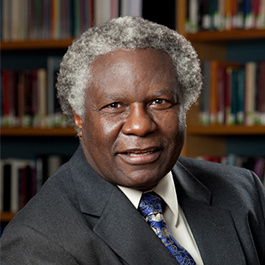
Calestous Juma is a Kenyan scientist and academia, specializing in sustainable development. He was named one of the most influential 100 Africans in 2012, 2013 and 2014 by the New African magazine. He was Professor of the Practice of International Development and Faculty Chair of the Innovation for Economic Development Executive Program at Harvard Kennedy School. Juma was Director of the School's Science, Technology and Globalization Project at Harvard Kennedy School as well as the Agricultural Innovation in Africa Project funded by the Bill and Melinda Gates Foundation. His last book, Innovation and Its Enemies: Why People Resist New Technologies. was published by Oxford University Press in 2016.
The Office of the Chief Scientist (OCS) is part of the Department of Industry, Innovation and Science. Its primary responsibilities are to enable growth and productivity for globally competitive industries. To help realise this vision, the Department has four key objectives: supporting science and commercialisation, growing business investment and improving business capability, streamlining regulation and building a high performance organisation.
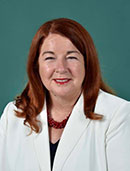
The Minister for Science and Technology is a portfolio in the Government of Australia held by Melissa Price since 8 October 2021.

Daresbury Laboratory is a scientific research laboratory based at Sci-Tech Daresbury campus near Daresbury in Halton, Cheshire, England. The laboratory began operations in 1962 and was officially opened on 16 June 1967 as the Daresbury Nuclear Physics Laboratory by the then Prime Minister of United Kingdom, Harold Wilson. It is operated by the Science and Technology Facilities Council, part of UK Research and Innovation. As of 2018, it employs around 300 staff, with Professor Susan Smith appointed as director in 2012.

The Department for Innovation, Universities and Skills (DIUS) was a UK government department created on 28 June 2007 to take over some of the functions of the Department of Education and Skills and of the Department of Trade and Industry. Its head office was based at Kingsgate House, 66-74 Victoria Street, London SW1, which has now been demolished. In June 2009 it was merged into the newly formed Department for Business, Innovation and Skills. It was responsible for adult learning, some parts of further education, higher education, skills, science and innovation.
Gavan McDonell is an Australian civil engineer, economist and political sociologist in the fields of national infrastructure policy reform, international development and academic education for advanced sustainability studies.
William James Peacock, is an Australian molecular biologist who was Chief Scientist of Australia (2006–2008), President of the Australian Academy of Science (2002–2006) and Chief of CSIRO Plant Industry (1978–2003).

Science and Civilisation in China (1954–present) is an ongoing series of books about the history of science and technology in China published by Cambridge University Press. It was initiated and edited by British historian Joseph Needham (1900–1995). Needham was a well-respected scientist before undertaking this encyclopedia and was even responsible for the "S" in UNESCO. To date there have been seven volumes in twenty-seven books. The series was on the Modern Library Board's 100 Best Nonfiction books of the 20th century. Needham's work was the first of its kind to praise Chinese scientific contributions and provide their history and connection to global knowledge in contrast to eurocentric historiography.

The Faculty of Science is a constituent body of the University of New South Wales (UNSW), Australia. It is UNSW's second largest Faculty. It has over 400 academic staff and over 700 research staff and students.
Ralph Owen Slatyer was an Australian ecologist, and the first Chief Scientist of Australia from 1989 to 1992.
The Prime Minister's Science, Engineering and Innovation Council (PMSEIC) is the Australian government's principal source of advice on science, engineering and innovation issues, as well as relevant aspects of education and training. When PMSEIC was created in 1997, it took over the responsibilities of the Australian Science, Technology and Engineering Council (ASTEC).
This is a bibliography on the history of science and technology in Canada.
References
- ↑ Australian Science and Technology Council (1977 - 1997), Australian Science at Work (University of Melbourne).
- ↑ Boardman, Keith: The Pace of Change in Science and Innovation, Year Book Australia, 2001, Australian Bureau of Statistics, 25 January 2001.
- ↑ [Volume 1]